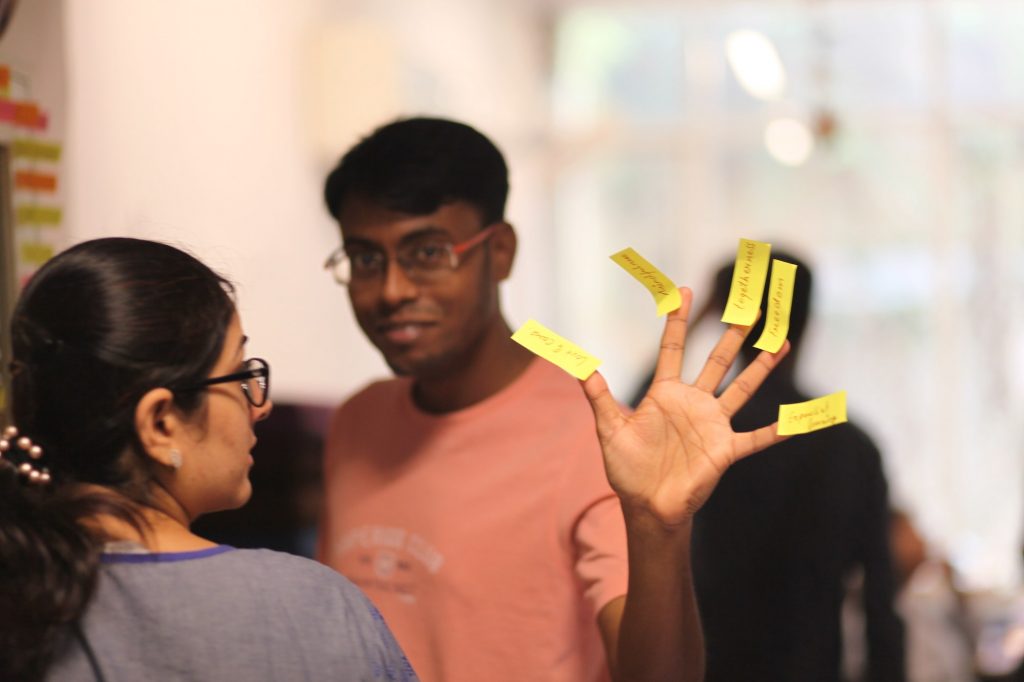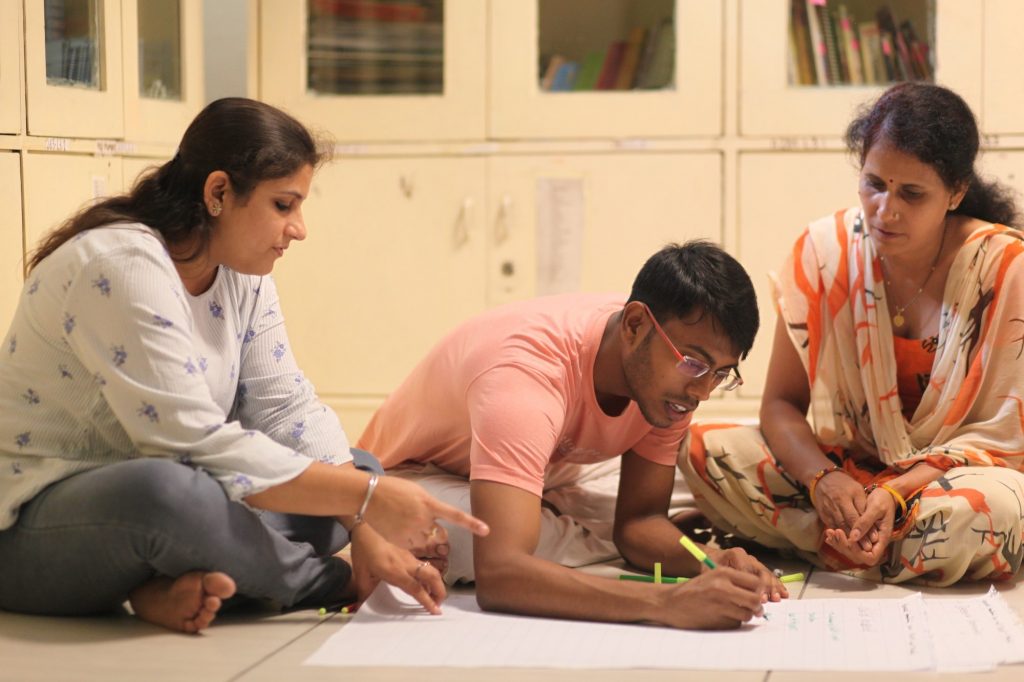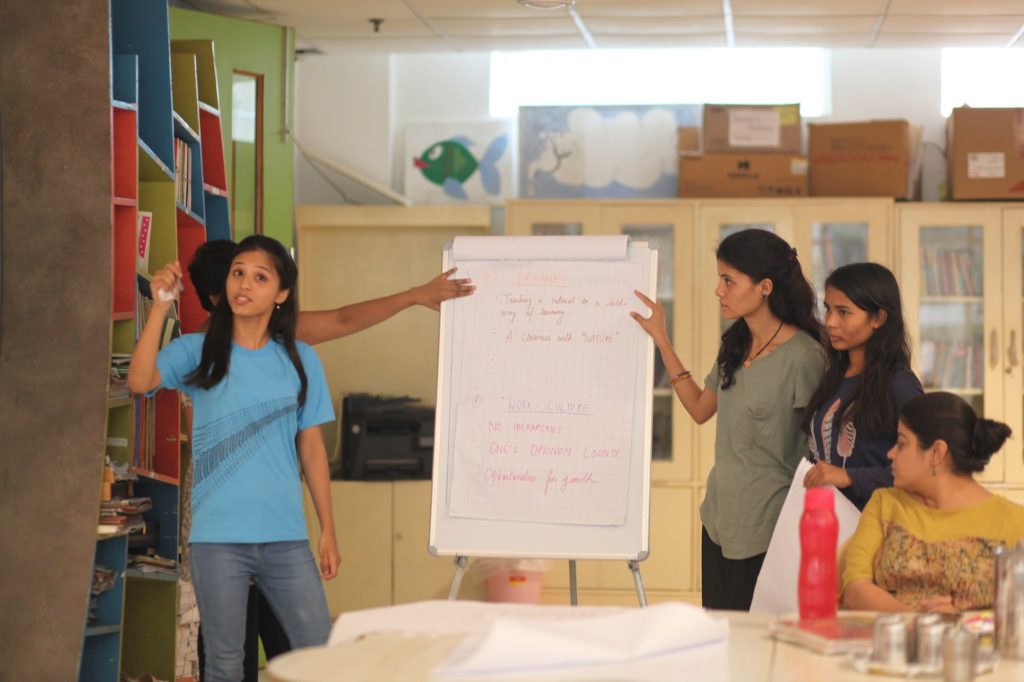On July 27, 2019 I conducted a design thinking workshop at Prakriti School in Noida. Prakriti is the partner and supporter of the Open School Project I run with the Rural Changemakers. So naturally the changemakers were part of the workshop. Not only did they participate in the sessions, they also facilitated two sessions. Important sessions actually. Sessions that kept the participants fit and awake … twice during the day they did excercise with them. The breaks were welcomed by everyone and helped the participants to go through the day.
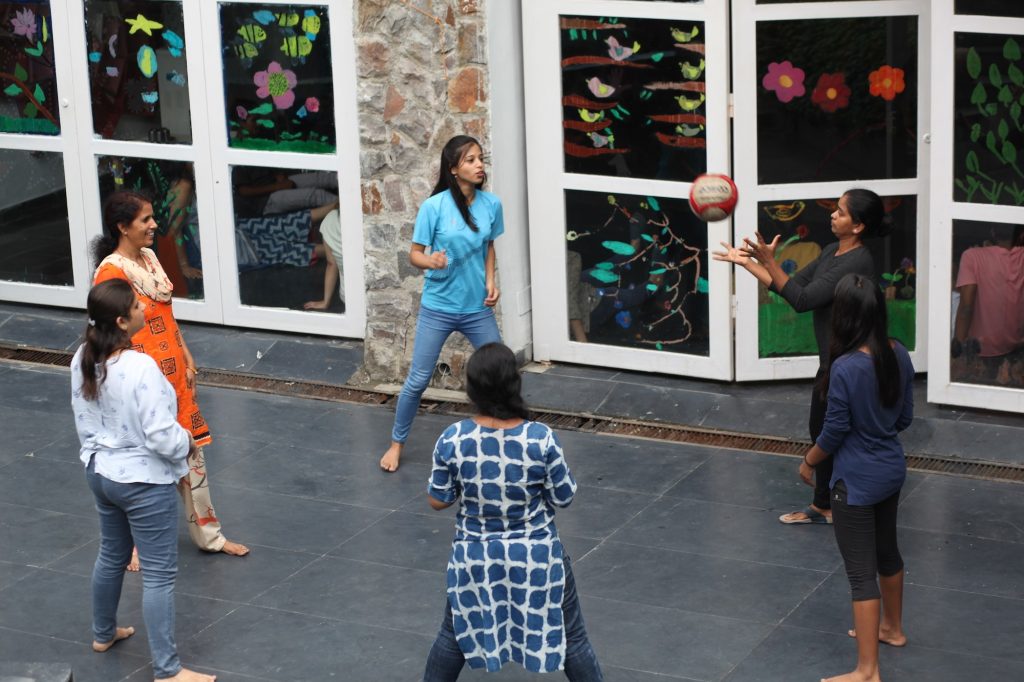
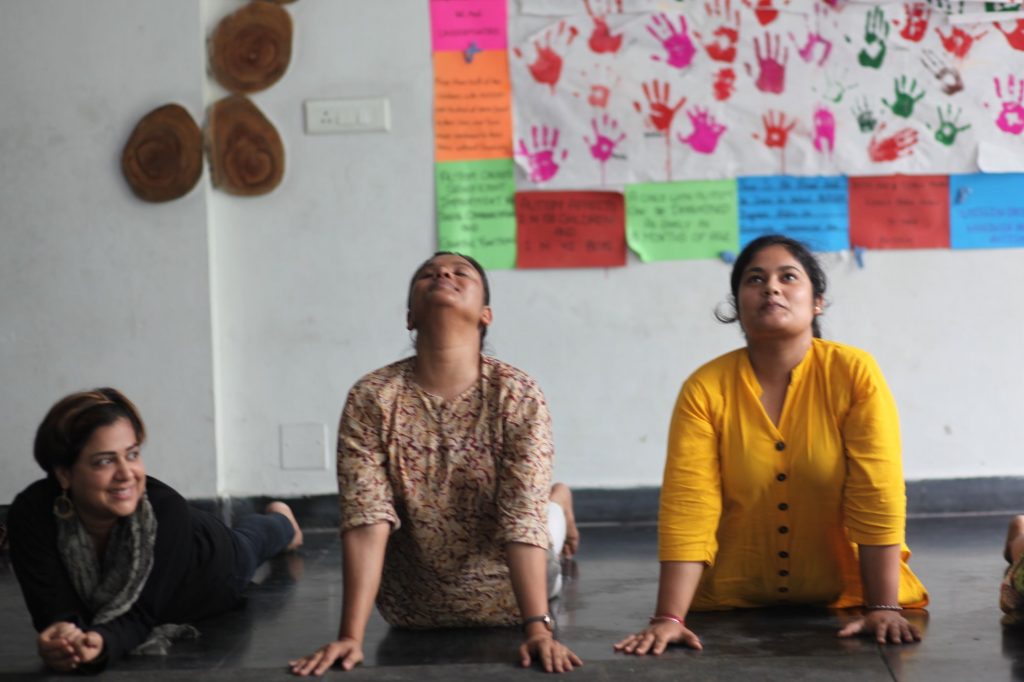
The main agenda of the workshop was to start a process of collaboration and co-creation among the staff and the management team of Prakriti in order to achieve a common understanding of what Prakriti stands for (= mission statement) and how can it be defined (principles/values which set the frame for all Prakriti activities). The method we used for the workshop was a slightly modified version of design thinking. Design thinking relies on the human ability to be intuitive, to recognize patterns, and to construct ideas that are emotionally meaningful as well as functional. It’s an iterative approach with a focus on teamwork.
The main outcomes we achieved were:
- a true “we-Prakriti-feeling” emerged as the day went on.
- the rotating model of the group works connected colleagues which weren’t so much in contact before.
- the participants felt empowered and set free a lot of energy.
- “The path is the goal” – this proverb was proven right.
- we identified six principles/values which define Prakriti.
- we defined the meanings of these six principles/values (an ongoing process).
- we found a variety of “mission statements” for Prakriti based upon the principles.
Nothing about what has happened during the workshop is written in stone. It is an ongoing process; a process that has just started.
The outcomes in more detail:
In the first session of the day, the only session which wasn’t teamwork, the participants were asked to write down max. five attributes which describe/define the values of Prakriti. These attributes/values were then clustered under “umbrella-words”:
- Deeper Learning – attributes for this were: “Method”, “Innovation”, “Experiential learning”. “Uniqueness”, etc
- Inclusivity – attributes for this were: “Caring”, “Support”, “Tolerance”, etc
- Child-Focused – attributes for this were: “Freedom”, “Each one count”, “Revolutionary”, “Holistic”, “Warmth”, etc
- Creativity – no attributes here, this came as a result of the discussion
- Organic/Evolutionary – attributes for this were: “Look within”, “Being”, “Nurture”, “Kindness”, “Compassion”, “Positivity”, “Happiness”
- Work Culture – attributes for this were: “Transparency”, “Honesty”, “Equality”, “Respect”, etc
This individual exercise got the ball rolling and throughout the day, the participants were reflecting and working on these six “umbrella-words”. In groups of four, they kept defining and re-defining their meaning and narrowed them down in the context of “Prakriti”. The group sessions also helped to achieve a better common understanding of what “we” all mean when “we” use these umbrella-words.
Throughout the day, the participants were working in teams of four, for each session though we created different teams. The rotation ensured that everyone had at least the opportunity to work with anyone else of the entire group.
After each team-session, the outcomes were presented to the other teams and discussed. In the last group session of the day, the task was to create a one-liner on “Prakriti culture” and what “Prakriti” as a school stands. It was meant to summarize our day’s work.
The workshop ended with a feedback round. Each participant expressed what he/she will take away from the day. For some, the workshop was a “much-needed one” whereas for some the workshop helped them clarify their thoughts. Some said that the workshop helped them in “deeper learning of previous knowledge” and for almost all of the participants, the workshop was a refreshing and rejuvenating event. Ulrike, who guided the teams through the day, added at the end that the fact, that 26 out of the 29 participants were women, had a very positive impact on the outcomes. She never had such a “female-overload” in a workshop and never witnessed such a little competition!
